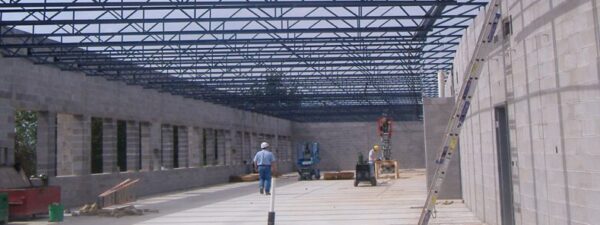Feasibility Study: Does Every Construction Project Need One?
What are Feasibility Studies?
As the name implies, a feasibility study seeks to determine if a proposed construction project is feasible. Also known as a viability analysis, this study looks at the technical, economic, legal, operational, time, and need factors. Typically, these studies are led by an architect and engineer and are done at the very earliest stages of a project. It provides an independent assessment of the project. The report will provide valuable information about the status of current structure (and/or land). Will the land or structure support the proposed project? What mitigation or repairs will need to be considered? It will also help owners determine whether the project would be best designed as a remodel or addition. Ultimately, will this project give the owner the return on their investment.
Do I Really Need One?
 As the owner or stakeholder, you don’t want to get deeply invested in a costly project to find out a month into construction that a project needs to be put on hold because the type they typical pylons used will not hold the weight of the building and that the cost of the materials needed are more expensive than anticipated. Trust us, this can kill a budget! And if this is a government or school project you don’t want to endure the criticism and negative from the public and civic leaders.
As the owner or stakeholder, you don’t want to get deeply invested in a costly project to find out a month into construction that a project needs to be put on hold because the type they typical pylons used will not hold the weight of the building and that the cost of the materials needed are more expensive than anticipated. Trust us, this can kill a budget! And if this is a government or school project you don’t want to endure the criticism and negative from the public and civic leaders.
As construction managers and project managers, we’re often brought in on the feasibility stage to assess the materials and costs and to provide realistic estimates of timetables. We’ve overseen hundreds of projects and we know material costs, we’re aware of substitute materials that may provide the same look and feel to the project but cut material costs by thousands or even hundreds of thousands of dollars which can then be turned back over to the owner or be used to make further improvements not in the initial plan.
Does Every Project Need One?
The simple answer is no. A smaller project may not need a feasibility study, but larger projects are advised to always pursue a feasibility project. For smaller jobs, it’s wise to go through some of the basic steps involved in a feasibility study to look out for your own best interests. It’s easy as an owner to get caught up in the excitement of a projector even push the timeframe at the expense of better decisions. What are the questions that any project should investigate?
- Have you gained all required permits and licenses?
- Will this project solve current needs in space, layout, materials, budget and time?
- What technology needs will I have and where is the best/most efficient placement?
- Have you considered employee, produce and equipment movement?
- Will this project design be flexible enough to support future expansion economically?
- Have you anticipated future expenses?
- Have a non-biased professional look at the plans to provide feedback.
- Pull in your CM or construction team to make recommendations prior to breaking ground.
Where Do I Start?
The best place to start is to outline what why you are needing/wanting this project. Try to answer as many questions above as possible. Then contact a reputable engineer or architect. They will talk you through what they need and cost involved. If you don’t have an engineer or architect in mind, contact your builder. They will very likely have a list of trusted companies. Don’t have a CM or Construction company yet? Give us a call. We can guide you in a positive direction even if you don’t commit to using our services. We love it when people hire us based on our reputation, but we always think it’s a good idea to compare services.
Shireman Construction
We are a family-owned business established in 1957, with deep-rooted respect for quality and craftsmanship.
Our goal is to deliver a quality project on time and within budget, ensuring long-term satisfaction. But that’s the middle of the story. The beginning is being excellent leaders who develop and manage productive teams. We’ve gained and passed on a wealth of knowledge innovative construction techniques; value engineering; material insights; cost controls; and most important, common sense construction excellence and integrity.
We navigate the complexities of construction which minimizes the stress for our clients and allows them to focus on what they do best.
A Client’s Perspective:
“Did we make the right decision? Our project came in $700,000 under budget. There were no problems with subcontractors. We were kept informed so there were no “surprises”. Finally, the taxpayers got a structure that was attractive, functional, and secure.”
– Terry L. Miller
Harrison County Commissioner

